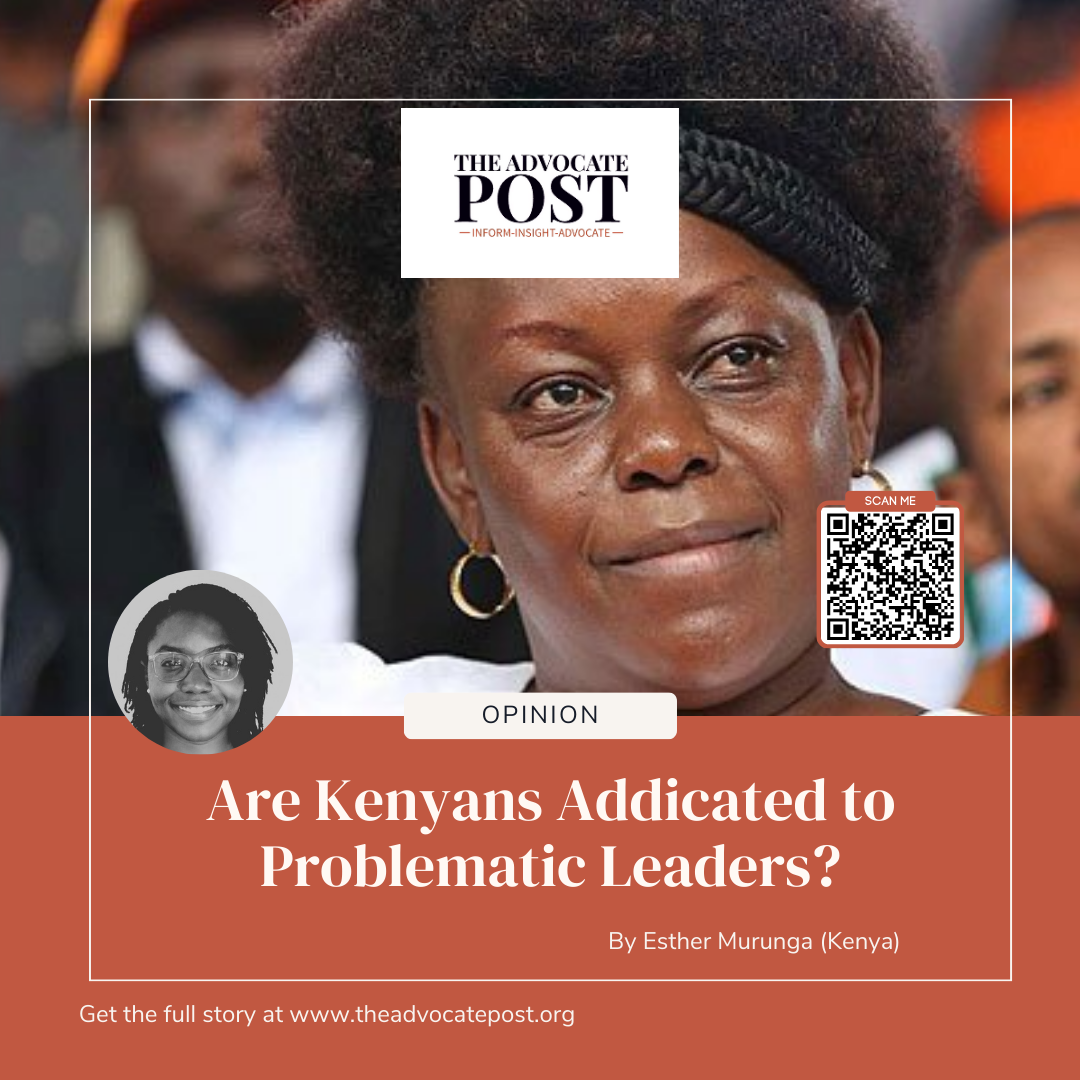By Esther Murunga (Kenya)
Have you ever met Millie Odhiambo in person? If you have, you know that this current Member of the Kenyan Parliament can light up any room. Through an annual GirlUp Summit held at KICC in 2024, I met Millie Odhiambo in a guided discussion session. Her sentiments were as profound as they were in plenty but what gripped my mind most was the launching of her book ‘Rig or Be Rigged.’
In her book, Millie talks about a phenomenon that’s all too familiar yet strangely intriguing in Kenyan politics: the “bad boy” syndrome. An excerpt from the book reads:
“Kenyan politics seems to have the ingredients of the “bad boy” syndrome…This is a male who behaves badly, especially towards women and yet remains the most alluring to them… …Prof. Bill von Hipple, claims that women are especially attracted to bad boys when they are ovulating.
In Kenyan politics,…we seem to be an increasingly- this I dare say- permanently ovulating society.”
This got me thinking: are Kenyans hopelessly in love with “bad boy” politicians?
Who is a “bad boy” politician?
A “bad boy” politician typically embodies the following characteristics:
- Reckless Behavior: Engaging in irresponsible actions that often challenge laws to appeal to a sense of adventure among their supporters.
- Charisma: Possessing strong persuasive communication skills that allow them to garner support despite their flaws.
- Nonconformity: Rejecting traditional political etiquette to position themselves as outsiders unafraid to challenge the status quo.
- Polarising Figures: Provoking strong positive and negative reactions through their actions and statements to acquire a devoted following.
- Emphasis on Strength: Projecting an image of strength and decisiveness to appeal to voters’ desires for assertive leadership, especially in times of uncertainty.
Kenyans As Targets
The “bad boy” politician targets the Kenyan voters because they have experienced prolonged political instability, making them desperate for a leader who promises change and assertiveness, even if they exhibit “bad boy” traits.
In times of uncertainty, Kenyan voters often demand strong, decisive leadership. This need drives them to gravitate towards the “bad boy” politician, who convinces them they can navigate the complexities of governance effectively.
Charisma also plays a crucial role in politics, and many “bad boy” politicians possess strong charismatic qualities that resonate with Kenyan voters. They connect with voters emotionally through engaging speeches and bold promises that overshadow their negative traits.
To top it all off, the media amplifies the narratives surrounding charismatic leaders, focusing heavily on their controversial actions. In Kenya, such sensational media coverage enhances the appeal of the “bad boy” politician, making them prominent in public discourse. This exposure can lead to increased support, even amidst controversy.
The Problem With The “Bad Boy” Politician
“Bad boy” politicians often engage in unethical behaviour, undermining the integrity of political institutions. They are frequently involved in scandals related to theft, corruption, and embezzlement. Their willingness to break rules for personal gain contributes to a culture of deplorable public service.
Their reckless behaviour, driven by impulsiveness rather than sound governance principles, results in poor policy outcomes and economic mismanagement. Coupled with their divisive rhetoric, Kenya remains in a constant state of political instability.
Just as it would be in a relationship, Kenyan voters often nurse heartbreaks from the “bad boy” politician. When such leaders fail to deliver on their promises, voters are disappointed, creating a cycle of voter apathy and decreased political participation.
The charisma of “bad boy” politicians also fosters a culture where accountability is loathed. Their supporters are reluctant to criticize them, fearing the loss of the saviour they associate with. This results in a culture of impunity, where leaders feel emboldened to act without regard for consequences.
This culture cascades to ordinary citizens, altering their perception of acceptable behaviour. How can they be blamed when “bad boy” politicians are constantly rewarded for their actions? This suggests that integrity and responsibility are reserved for the simpletons.
A Way Forward
To break free from the “bad boy” spell, we need to boost civic education, emphasizing critical thinking and informed voting. Transparency and accountability must become the norm, supported by grassroots movements championing ethical leadership.
Strengthening media literacy will also help citizens critically assess political narratives and resist charismatic but misleading rhetoric. Inclusive political dialogues that welcome diverse voices can reduce the appeal of polarizing figures, paving the way for responsible, principled leadership in Kenya.
To sum it up, it’s time for Kenyans to swipe left on “bad boy” politicians and start looking for leaders who are genuinely interested in public service.





